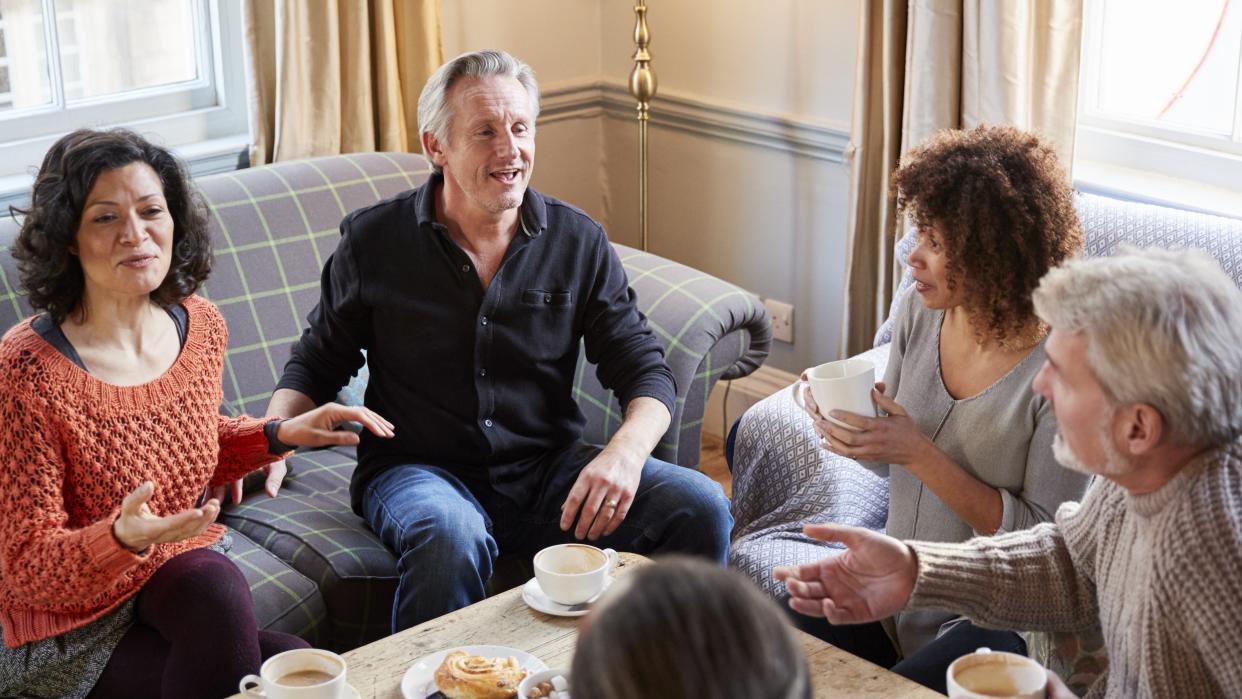Death Cafes: where people talk mortality over tea and cake

Once a month, in countries from Afghanistan to Zimbabwe, people are gathering to eat cake and talk about the typically taboo topic of death.
At Death Cafes, said Emma Freud in The Times, people with a range of interests in the subject come together to discuss "the end of life experience in any of its forms", in what is widely viewed as part of the "death positive" movement.
The background
Death Cafes were founded by Jon Underwood and his mother, Sue Barsky Reid, a psychotherapist. They were inspired by the work of Swiss sociologist Bernard Crettaz, who had developed a project called Café Mortel, where people would gather to talk about death.
The first Death Cafe in the UK was held at Underwood's home in Hackney, east London, in September 2011. It was a "wonderful occasion", said the Death Cafe website, and more were then held in places including "funky cafes, people's houses, cemeteries, a yurt and the Royal Festival Hall".
The four rules are that Death Cafes are offered on a not-for-profit basis; in an accessible, respectful and confidential space; with no intention of leading people to any conclusion, product or course of action; and that cake is offered. The gatherings are a "discussion group rather than a grief support or counselling session", said the website.
Death Cafes spread nationally and internationally, with the first overseas version held in Columbus, Ohio, in 2012. There have now been more than 18,000 groups worldwide, but "they seem to be most prevalent in countries where people are uptight about the subject" and "hence we have more than 3,400 in the UK", said Freud.
Underwood died suddenly in June 2017, at the age of 44, and Death Cafe is now run by his mother and his sister, Jools Barsky.
The latest
Visiting a Death Cafe in London, Freud found "there were no formal objectives" or "grief counselling", but there was "tea and, naturally, cake – that great lubricant of awkwardness". The discussion was "riveting" and free of "small talk". A woman with terminal cancer spoke and "because we were strangers, her words had no consequences she would need to deal with, and that seemed to set her free".
After joining a Death Cafe in Willesden, northwest London, Gaby Wine wrote in The Jewish Chronicle that it was "heart-warming" that "while not everyone agrees with one another, everyone shows great respect". Despite the subject matter, she had a "surprisingly jolly chat".
Attendees will "seamlessly switch" between "sombrely discussing subjects like the difference between suicide and medical aid-in-dying" to "joking about the sayings they'd want written on their tombstones", said The Huntington News.
The gatherings are seen as a sign of the rise of the "death positive" movement, which "seeks to normalize the recognition and embrace of the ultimate elephant in the room", said Steffie Nelson on TruthDig. The term "death positive" originated with Los Angeles undertaker Caitlin Doughty, who in 2011 founded The Order of the Good Death, advocating for funeral industry reform and more openness around death and dying.
The reaction
A newcomer to her area, Freud "learnt more about the soul of my neighbourhood in those two hours than I had in the previous two months". There was "joy" in the "deep connection with a hall full of strangers", the "licence to show vulnerability without judgment" and "the privilege of being granted access to the most tender and unprotected place in the hearts of my neighbours".
During the Victorian era people hired professional mourners to "weep" at burial sites and funerals and help attendees "feel safe enough to do the same", said Anna Wolfe on Huck. And "in a way" Death Cafes provide "something similar".
Meanwhile, if you want to find or even host one, check the organisation's website. It's easy to set one up, wrote Wolfe. "All you need is a set of Death Cafe guidelines, a venue and the ability to bake or buy a pack of Mr Kipling's."

